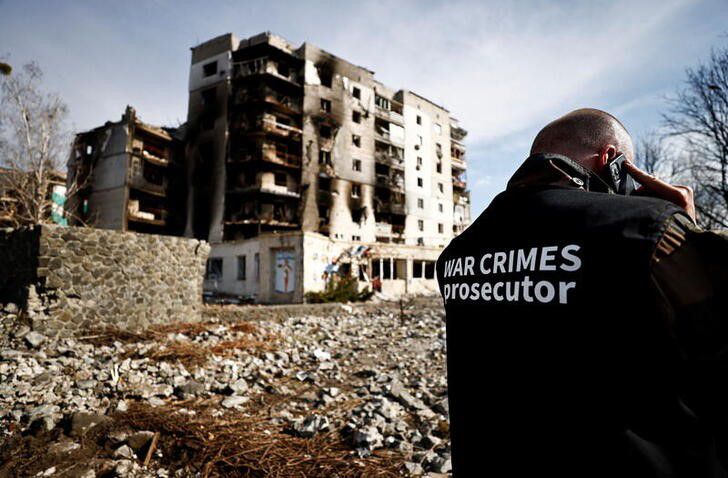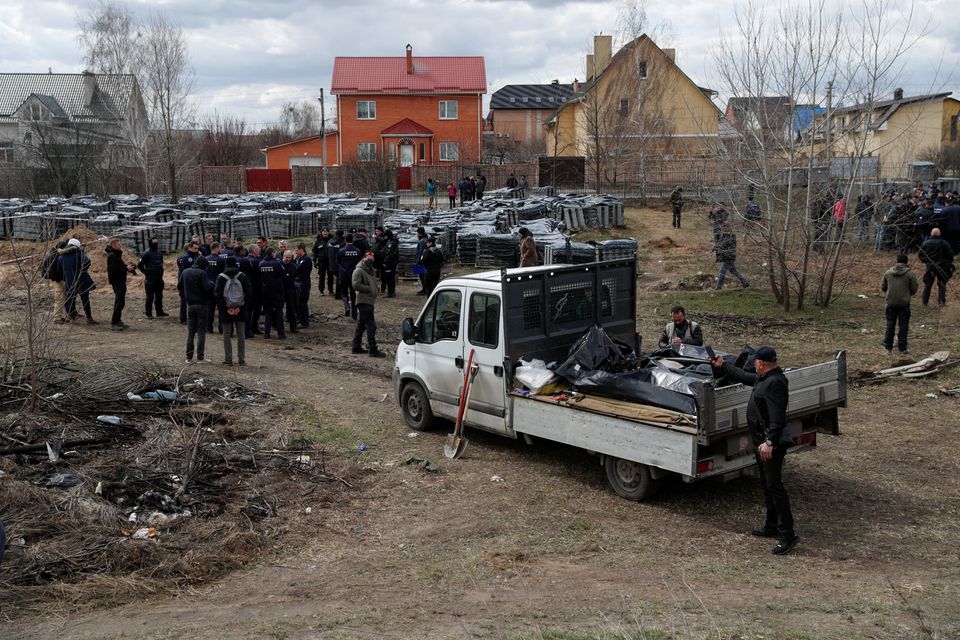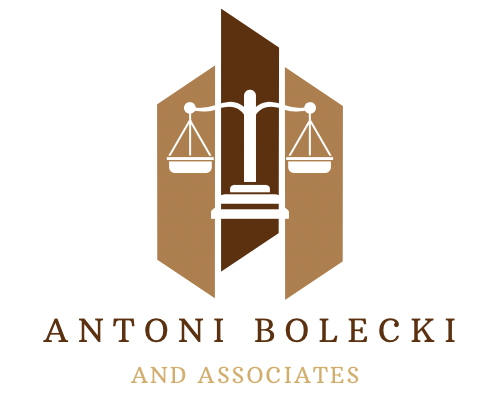
The U.S. State Department on Tuesday announced the launch of a new program to capture and analyze evidence of war crimes and other atrocities allegedly perpetrated by Russia in Ukraine, as Washington seeks to ensure Moscow is held accountable for its actions.
The State Department in a statement said the so-called Conflict Observatory will encompass documentation, verification and dissemination of open-source evidence of Russia’s actions in Ukraine. Reports and analyses will be made available through the Conflict Observatory’s website.
U.S. President Joe Biden has hammered Russia over what he calls “major war crimes” committed in Ukraine, and has underscored his resolve to hold Moscow accountable for launching the largest land war in Europe since World War Two.
The Kyiv government has accused Russia of atrocities and brutality against civilians during the invasion and said it has identified more than 10,000 possible war crimes.
Russia denies targeting civilians and says, without evidence, that signs of atrocities were staged.
The U.S. State Department said the new program, which is being established with an initial $6 million investment, will analyze and preserve information, including satellite imagery and information shared on social media, so it can be used in ongoing and future accountability mechanisms.
“This new Conflict Observatory program is part of a range of U.S. government efforts at both national and international levels designed to ensure future accountability for Russia’s horrific actions,” the statement said.

The program is a collaboration with geographic information systems company Esri, Yale University’s Humanitarian Research Lab, the Smithsonian Cultural Rescue Initiative and PlanetScape Ai, the State Department said, adding that future funding will come from the European Democratic Resilience Initiative.
State Department spokesperson Ned Price said the United States has been engaged through a variety of mechanisms to collect and document evidence of potential war crimes and atrocities with relevant prosecutors, state entities and organizations.
But the new program, he told reporters, will share those findings for the public and authorities in areas of appropriate jurisdiction, including within Ukraine and possibly the United States, “so that prosecutors can potentially even build criminal cases based on the material that is published.”
A Ukrainian court held a preliminary hearing on Friday in the first war crimes trial arising from Russia’s Feb. 24 invasion, after charging a captured Russian soldier with the murder of a 62-year-old civilian.
Russia has bombed cities to rubble and hundreds of civilian bodies have been found in towns where its forces withdrew since starting what it calls a special operation to demilitarize Ukraine. Kyiv and its Western allies say it is a baseless pretext for an unprovoked war.
The International Criminal Court (ICC) said on April 25 it would take part in a joint team with Ukrainian, Polish and Lithuanian prosecutors investigating war crimes allegations against Russian forces.
Ukraine has little experience in prosecuting such cases. Its parliament last year adopted legislation to provide a legal framework for war crimes prosecutions in line with international practice, Zera Kozlyieva, deputy head of the war crimes unit in the prosecutor general’s office, said last month.
She said the country had only convicted three individuals previously for crimes between 2014 and the February invasion this year. Those were related to the conflict in the disputed Donbas region and Crimea, which was annexed by Russia.
